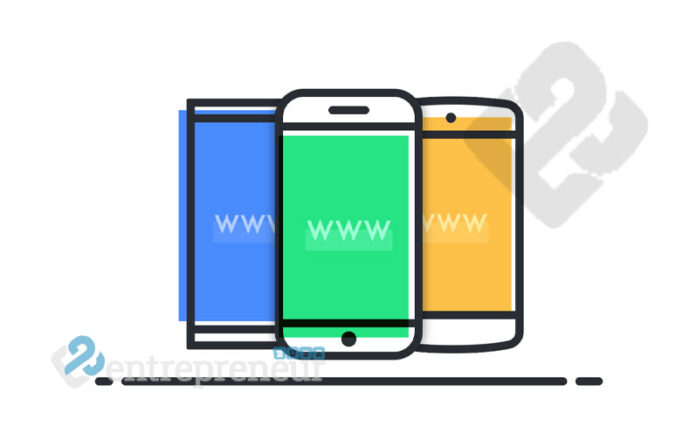Ionic is already well-known as a versatile cross-platform development framework for building feature-rich and aesthetically appealing hybrid mobile apps that can run on any OS platform. Ionic relying on tried and tested web technologies such as HTML 5, Javascript, and CSS is the perfect framework to turn your existing website into a robust hybrid app.
Build Progressive Web Apps
If you pay attention to Progressive Web App (PWA) as a technology, you can easily see how web technologies are tuned for delivering a more native mobile user experience. This is why Ionic fits perfectly into PWA app development requirements. If you think by building a PWA you can reduce the cost to build an app for multiple platforms, Ionic with its hybrid approach helps you to get further cost advantages.
Let’s have a quick look at the key highlights of the Ionic framework for PWA development.
- Ionic framework despite using web technologies can create stunning native UI.
- Ionic because of using web technologies works independently and doesn’t need to rely on native OS platforms.
- Ionic makes use of PhoneGap or Cordova as the outer layer of the native user interface.
- Ionic is basically a hybrid web development framework with the ability to build a native mobile app interface and hence it is ideal for PWA which aims to achieve the same outcome.
Ionic Framework & PWA: complementing each other
To have a comprehensive understanding of the advantages of Ionic for the PWA development you need to look closer at the hybrid development capabilities of the framework. Ionic uses both Apache Cordova & Angular, widely acclaimed frontend frameworks to shape an interactive web app with a native UI wrapper. Since PWA tries to achieve the same native mobile user experience through a website, Ionic naturally fits into PWA development.
For connecting native features and UI elements of the OS platforms, Ionic relies on Apache Cordova plugins. On the other hand, Ionic uses WebView which means Ionic apps are still web apps that offer native UI elements of mobile platforms. Apache Cordova for Ionic apps brings the native APIs through useful plugins and helps using native functionalities such as camera, GPS, accelerometer, etc. PWAs are also websites that appear with some native mobile features, UI elements, and functionalities. Many small business firms and app developers uk are turning to Ionic for PWA development now.
Now let us try to understand the key reasons for using Ionic for PWA projects.
Web first and mobile later
Ionic basically builds web apps wrapped with a set of native mobile UI components and platform-specific APIs. Because of this native wrapper, the so-called web app can also run on iOS and Android mobile platforms.
Progressive Web Apps (PWA) offer the same value proposition. PWAs are basically websites appearing with native apps like look, feel, and certain features. Naturally, for developers already familiar with web development technologies and practices Ionic offers just the right set of technologies.
Ionic is versatile enough
Despite being tagged as a web framework often, Ionic is capable to access all native APIs of all platforms, and apps built with Ionic don’t fall short of native user experience, whether for iOS or Android.
Moreover, Ionic offers developers a whopping set of more than a hundred integrations with native API. This helps just extend any app to any native mobile platform. If this is not enough, developers can also use custom native iOS or Android code in an Ionic app project.
Ionic offers a free toolset for small-budget apps
The Framework coming with a robust and extensive set of UI controls for all platforms is just open-source and free to use. With such tried and tested implementation across so many successful app projects, Ionic naturally brings versatility into app development like never before. PWA app projects of small businesses and professionals can be particularly benefited from the Ionic framework.
Ionic boosts productivity
Since Ionic embraces the hybrid philosophy of “write once run anywhere”, the development pace easily gets faster. When you need to build one app that runs on all target platforms, you make a considerable saving on development time. The higher productivity and faster time to market ultimately bring down the cost of development as well.
Time-tested Angular for frontend
As a frontend framework, Angular has always been a top choice for most app projects. At the very core of Ionic, there is the Angular frontend framework. Angular having evolved for years offers the most well-equipped framework for high-performance user interface and user experience.
Cordova for native UI building
For any web or hybrid app, plugins bring the versatility and flexibility of incorporating additional features and this is where the Cordova helps Ionic apps. Cordova plugin ensures creating a native user experience and look and feel of the app. Thanks to this plugin the app can easily access various platform features and UI elements resulting in a native user experience.
Cordova also reduces the development efforts to a minimum level and ensures optimum efficiency. Thanks to this plugin, Ionic-based PWAs can easily offer users access to multiple native features and functionalities such as a camera, GPS, accelerometer, and several others.
Stupendous community
Community support gives any technology an edge. With robust community support, developers can easily reach out to other Ionic experts over the web and get things solved faster. No wonder, Ionic developers enjoy continuous inputs from the market and developers.
Also read: A Powerful Combination for Perfect Web Applications
Parting Words
Ionic from the above-mentioned elucidation can still be understood as the ideal framework for PWA projects. Since PWAs are getting popular because of offering the unique user experience of websites equipped with mobile app-like experience, Ionic with similar abilities just fits in. The hybrid development approach is still relevant for small-budget apps, particularly if you can utilize a versatile framework like Ionic.

